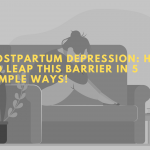Looking for someone who could tell about What Are The Effects Of Mental Retardation??
Well, you are in the right place then…
In previous posts, we talked in detail about mental retardation, the first reports about it, the first cases.
Methods that were used by the doctors in the 1800s to treat mental retardation, the symptoms and diagnosis methods, and also discussed the causes of mental retardation.
In this update to the series of posts dedicated to mental retardation, we shall understand what are the effects of mental retardation.
However, a condition as complex as mental retardation doesn’t come just with discomfort families and patients face throughout their lives.
Mental Retardation has been looked down upon since times immemorial, the stigma surrounding mental retardation is still present to this day and occasionally people are pushed to make harsh decisions.
The effects of mental retardation can impact the lives of the patients, their family members to a similar extent.
The documentation of intellectual disability goes back as Greek and Roman times, however, much hasn’t changed on how people view these individuals.
What are the effects of mental retardation on society?
Greek and Roman philosophers who laid out the groundwork for much of the modern world disparaged mentally retarded people.
Greek philosopher Hippocrates said, in his works, that this condition was caused by an imbalance in the humor of the brain.

In the cases of mentally retarded individuals’ life, society can play a pivotal role, changing the effects of mental retardation.
In medieval Europe such individuals were provided with asylum and care by families and church/monasteries, their basic needs like food, clothing, and shelter were taken care of.
However, negative stereotypes about the mentally retarded were very much predominant.
With the 18-19th century, primary care was moved from homes and monasteries to Asylums.
Mentally retarded individuals were removed from their families in the early years and placed in large asylums, many of which employed such individuals to keep the establishment self-sufficient.
Most of these institutions took care of their basic needs but not much education was ever provided to such them.
Even in these asylums, the patients who came from higher classes of society had better care, the ones from lower sections were looked down upon as a burden on society and aggravated the effects of mental retardation.
With the 1960s, this fraction of the population was mostly segregated from the general populace at an early age, and society didn’t attempt to induct this population into itself.
The work by Wolf Wolfensberger changed this idea. In his works, he talked about how society characterizes the ones with disabilities as ‘deviant’, ‘sub-human’, and ‘burden on society’.
He argued that this dehumanization ignores that even these people can contribute to society.
He pushed for the rights of mentally retarded as same as others and can be seen as a positive effort to educate the society about the effects of mental retardation.
What are the effects of mental retardation on the family?
Most families find it hard to come terms to the fact that their child is diagnosed with mental retardation.
The grief of losing their normal child is generally overwhelming along with other effects of mental retardation.
The initial numbness and shock are followed by bereavement and eventually coping with the situation. Their reaction also depends upon
- The child’s age at diagnosis
- Knowledge about the disability
- Values and beliefs
- Mental and physical health of parents
- Marital relationship
- Finance and structure of the family

Most families do pick-up the pieces and function to better understand the level of disability, generally they show resilience and common sense while going through pain and emotional stress.
Most families develop better coping mechanisms and overall come to terms with the condition and aim at better management of it.
However, some include prolonged and excessive denial, blaming, anger, rejection, seeking miracle cures, and evading responsibilities.
The dynamics between the family members and the extended family also impact the effects of mental retardation.
A certain fraction of the kids impacted by the effects of mental retardation will have to be admitted to the psychiatric facilities for their aggravated symptoms.
What are the effects of mental retardation on young people?
Young people are the most negatively impacted facet in this whole discussion.
In the case of mild intellectual disability, we can see that being aware of the condition coupled with poor self-esteem can have a major impact on an individual’s emotional development.
Plus, the younger population is at a higher risk of being rejected, mocked, bullied, or scapegoating, and exclusion from social settings only worsens the effects of mental retardation.
There is also a higher risk of developing anxiety and/or even slipping into depression.
Emotional needs and inclusion are often overlooked by families that are struggling to make the ends meet.
The transition in age, puberty, and adolescence adds to the overall difficulty faced by individuals and families.
There is also a documentary that encapsulates all we’ve talked about in this post in a neat little watch.
Tips for the parents
- Learn more about intellectual disability. The more you know, the more you can help yourself and your kid.
- Be patient, be hopeful about your kid’s growth and maturity.
- Encourage them to be independent. Help them learn daily life skills like dressing up and taking baths.
- Give them some chores to help you out. Break down the tasks into simpler forms. Tell them what they have to do step by step.
- Give them frequent positive reinforcements
- Find out more about their skills. It is necessary for you to do so cause these skills can help them become independent
- Find opportunities in the community for social activities and help them build social skills
- Adore them to the fullest. He/she is your kid and even with the disabilities, they can be a light in your world.
Hope reading this answers the question of what are the effects of mental retardation and has given you enough idea as to how to cope with the stress and emotional pain and also better handle your child or loved ones.
The stigma around it is deeper than the label attached to the person. The misconceptions can be exhausting to diffuse but with a better and more aware society, we can look forward with hope.
Thanks for reading, we’ll see you next time.








